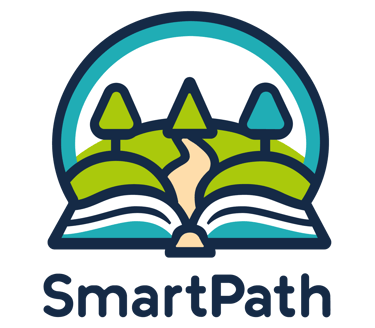You’ve Decided to Homeschool. Now What?
A real-world starting point (not another checklist)


Most "how to start homeschooling" guides feel like homework. They give you a list of tasks, legal terms, and curriculum options that make this whole journey feel more overwhelming than it already is. If that’s where you are right now, take a deep breath. This article isn’t about doing it perfectly. It’s about helping you start.
You don’t need to figure out everything in a day. Homeschooling isn’t a system you plug into. It’s something you build over time – one choice, one conversation, one discovery at a time. The good news? You’re not alone.
What If You Start Before You’re Ready?
Here’s the truth most guides won’t say: you don’t need to have every detail figured out before you begin. Yes, you’ll want to understand your state’s homeschooling laws, every state is a little different. Some ask you to submit a letter of intent. Others require attendance tracking or testing. You can find all of that on your state’s Department of Education site or through groups like the Homeschool Legal Defense Association (HSLDA).
But that legal framework doesn’t have to be your first step. In fact, many parents get stuck here and lose momentum. Start by learning, listening, and talking to other families. The paperwork can follow.
Forget the Labels (For Now)
You’ll hear a lot about homeschool styles: Charlotte Mason, Classical, Unschooling, Waldorf, Unit Studies. These can be helpful frameworks, but they can also make you feel boxed in too early.
Instead of picking a method, start by asking: What do I want more of in my child’s education? Less of? Maybe it’s more time outdoors. More curiosity. Less stress. Fewer worksheets. More creativity. Those values will guide you better than any label.
Most families end up blending approaches anyway. Your homeschool will look like your family – unique, evolving, and a little messy. That’s okay.
Curriculum Isn’t the First Step, It’s a Tool
One of the first questions new homeschoolers ask is: What curriculum should I use?
It’s a valid question, but not the first one to answer. Think of curriculum as a tool, not a foundation. Before choosing one, think about your child’s learning style and your daily rhythm. Are they hands-on? Do they prefer stories or structure? Do they need lots of movement breaks?
Try starting with just one or two subjects, reading and math, for example. Get a feel for what works and what doesn’t. You can adjust. You’re allowed to.
Our Curriculum Matcher was built to help parents narrow down those choices based on what actually fits. No more 60-tab rabbit holes. Just a place to start.
Build a Rhythm, Not a Replica
If your first instinct is to recreate the school schedule at home, you’re not alone. Most of us were raised in a system built on bells and blocks of time. But homeschooling doesn’t need a rigid schedule.
Start by noticing when your child is most focused. When do they start to fade? When are you most patient and present? Build your rhythm around those windows.
Some families do schoolwork in the morning and explore outside after lunch. Others work in short bursts throughout the day. Some take Fridays off or do math at night. You get to choose. Flexibility is one of the biggest gifts of homeschooling.
The Hardest Part Isn’t Teaching, It’s Unlearning
Many new homeschool parents are surprised by how much they have to unlearn. We’re conditioned to believe learning only happens at desks, with tests and grades. So when our days look quieter – reading on the couch, walking in the woods, and a child absorbed in LEGO for two hours – we start to worry.
That’s deschooling. It’s a phase of letting go of what school taught us learning "should" look like. It’s part of the process, not a pause in it. Be patient with it. Real learning doesn’t always look academic.
Find Your People (Not Just More Content)
When you’re new, it’s tempting to read everything. Watch every video. Download every freebie. But what helps most is talking to someone who’s been there.
Join a local Facebook group. Ask a neighbor who homeschools. Say yes to one co-op field trip. The first step into a community can make this all feel more doable and more human.
You’re Not Behind, You’re Just Starting
Your kids don’t need you to have it all figured out. They need you to show up, to stay curious, and to care about their learning. You’ll change things. You’ll pivot. That’s part of building something real.
If all you do this week is read a chapter together, go outside, or ask your child what they want to learn – that counts. You started.
And when you’re ready for the curriculum? We’re here to help with that too.
